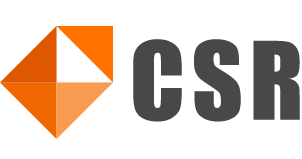When creating their website or blog, people tend to think about what they’re going to post on it, thus ignoring the search engine ranking aspect of it. And even if some people realize the importance of quality SEO, because of the huge number of webpages on the internet and due to the different obstacles which may arise at any time, getting on the front page of search engines may prove to be quite challenging. Each search engine uses a predefined formula in order to rank its content, and even though these formulas differed from website to website, all search engines took some common factors into account when ranking the website. Many people wish to get to the very top, but few of them truly manage to.
10 Things which could be harming your websites rankings:
1. Using the wrong keywords
If you do not use the same keywords that users enter when looking for a product, your content will never reach their search results page, and thus it will not be seen by the right people. Of course, you may assume that your website is already popular and therefore visitors access it in order to read its content, but truth is that if you do not take advantage of users coming from the search engines you’ll miss plenty of opportunities.
2. Not facilitating the content distribution
Since we live in the age of social media, it is important that your website visitors can easily distribute your content. Facebook, Twitter, and other social networks have become indispensable for an efficient communication with our clients, but they also help with search engine optimization. For once, by regularly posting content and article snippets on your social media accounts you increase your chances of visitors accessing your website. However, when a user “likes” one of your articles, he instantly shares it with all his friends on the social network. This means an increased exposure for your brand, but also the chance to make more sales. Users are interesting in quality and speed, they want everything to be available exactly when they need it, without having to research various sources. In this regard, facile content distribution is essential for a website’s high search engine ranking.
3. Excessive Amount of Keywords
Some “half” SEO experts believe in the power of keywords so much that they load the website content with excessive, undue and unnecessary keywords. It is correct that you need keywords for better ranking of the website, but excess in everything is bad. An SEO expert should know it better than anyone else when it comes to the keywords.
4. Not telling the search engines what kind of content your website offers
Search engines read HTML text, so if the entire content on your website is in the form of images or flash, search engines will not know what kind of content your site offers. Also, when the content is in the form of HTML text, it is more accessible to mobile users and those who have poor internet connections. Did you know that websites with lots of eye candy and complex designs tend to rank lower than the ones which focus on quality articles? This happens because search engines do not see websites in the way we do. They only see the code behind it, the text without any images, animations or add-ons. What this really means is that even if you have the most appealing website on Earth, without enhancing it with quality content you will not manage to do anything but scratch the surface. Users won’t still be able to find you.
5. Not including a call-to-action
The purpose of a website should be higher than to have a good ranking which attracts plenty of visitors. The purpose of a website should be to turn those visitors into customers. In the absence of a high customer conversion ratio, your business will ultimately become too uncompetitive to run. The Internet is a highly diversified market, where every person makes effort to bring customers on their side and to get on top.
6. Originality of Content
The originality of the content that you spread on the internet plays a vital role in your website’s ranking. Copied and unoriginal content will badly affect the ranking of website and readability of potential customers.
7. Believing that all your visitors are accessing your site’s home page at first
Each page of your website should be as a home page. Often, visitors do not come directly to the home page and then browse your site. Most visitors will conduct a search will be sent to a page on your website, and from there they will sail on other pages. Therefore, each part of your website is important for the user and for your search engine ranking and should be treated with maximum importance.
When users arrive from a search engine page, they will usually arrive at one of the adjacent pages of your website, or more probably on your blog, if you have one. It is highly important for those web pages to be designed well, in order to capture users’ attention, but even more important is to provide them with something of value. They need to be guided toward the answer they were initially looking for.
8. Using 301 Direct
Overlooking and deliberately not doing anything with the broken links on your website can also harm your ranking. You should use 301 Redirect, so you can maintain your ranking.
9. Web Designing/Development Knowledge
Though website design and development are not directly linked to search engine optimization if you have the knowledge if web development and design, it will prove very fruitful at the end. A jumbled up website design with links that don’t have keywords used in them can also bring the ranking of your website down. If can appropriately link the website design with your SEO techniques, you can help your website stay up in the searches.
10. Research on Keywords
Utilizing keywords without properly analyzing them is another thing that SEO experts must avoid. You need good research on the keywords, not just on the general ones but also on the specific and long ones. One thing that you should know is that long-tail keywords attract more potential traffic on your website because these are the visitors looking for some specific information.



